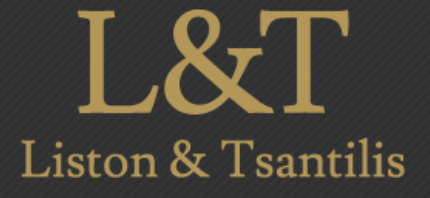Property Tax Experts Break Down Revisions To Cook County Tax Incentives

Nearly four decades ago, attorney Brian Liston worked as an assistant at the Illinois Attorney General’s Office, playing a key role in drafting Cook County incentives ordinances to boost the local economy and attract new businesses.
“I worked in a team alongside the Cook County Assessor Thomas Tully and Cook County President George Dunne to implement tax incentives to compete with the surrounding counties’ to lower assessment classifications, instill economic development and create jobs,” Liston said. “As Jerry Garcia of the Grateful Dead would say, ‘It’s been a long, strange trip.’”
Today, Liston is a partner alongside Peter Tsantilis at the Chicago-based Liston & Tsantilis, a law firm that specializes in eminent domain litigation, property tax litigation and incentives for industrial and commercial properties. His law firm has consistently been ranked No. 1 for the past 19 years by the Leading Lawyers Network.
In the decades since Liston helped shape those incentives, a lot has changed. And those changes seemed to speed up significantly in the last few years amid the changing real estate landscape.
“There have been significant changes in the last 36 months that we need to update the real estate community on to ensure they have all the necessary and accurate information they need to make informed decisions when it comes to incentives,” he said.
Liston and Tsantilis walked Bisnow through the major changes of the last four years and what they mean for the commercial and industrial real estate communities.
Prevailing Wage Requirements — Effective Sept. 1, 2020
Under the new prevailing wage requirements, any owner of an industrial property that applied for or received a property tax incentive for which a resolution or ordinance from the municipality or the county board was required must pay their workers a living wage, Liston said.
“Specifically, owners who provide health benefits to their employees must pay $15.50 an hour, while those who don’t need to pay $18.75,” Tsantilis said.
Economic Disclosure Statement — Effective May 1, 2021
Liston said that the economic disclosure statement requires that industrial and commercial real estate owners that have applied for a tax incentive must provide an affidavit where they list all of the real estate owned in Cook County.
Along with that list, they need to attest that they have not been delinquent in paying any of their Cook County property taxes.
Special Circumstances Term Revision — Effective May 13, 2022
This revision is particularly important to the Liston & Tsantilis team because they drafted the legislation on it in 2008 during the Global Financial Crisis, Liston said.
In the past, to qualify for Class 6b, Class 7 and Class 8 tax incentives, building owners needed to show a property was purchased for fair market value and had been vacant for at least 24 months. Under this revision, that length of time was reduced to less than 12 months with “special circumstances.” Now, all properties purchased at fair market value that had been sitting vacant qualify as having these special circumstances.
Properties not purchased for market value that have been vacant for at least 12 months also fall under the special circumstances provision and qualify for the incentive.
Incentive Affidavit Waiver Extension - Effective Oct. 7, 2022
For this revision, every property that has an incentive must provide a use affidavit under oath proving ownership and attesting that the current use has not changed and is consistent with the incentive provided, Tsantilis said.
Renewal Language Amendment — Effective March 17, 2022
Liston said that this amendment essentially snaps a “picture in time” for property owners, ensuring that if they apply for the renewal of an incentive and complete the application before the expiration of the renewal period, they remain eligible to receive it even if the county is behind on approving the application or does not do so until after the expiration date.
“It is crucial that Cook County property owners understand these changes with each incentive and strictly comply with these Cook County revisions," Liston said. “Otherwise, it could be fatal, and they may not receive the incentives they are heavily relying on.”
This article was produced in collaboration between Liston and Tsantilis and Studio B. Bisnow news staff was not involved in the production of this content.
Studio B is Bisnow’s in-house content and design studio. To learn more about how Studio B can help your team, reach out to studio@bisnow.com.

